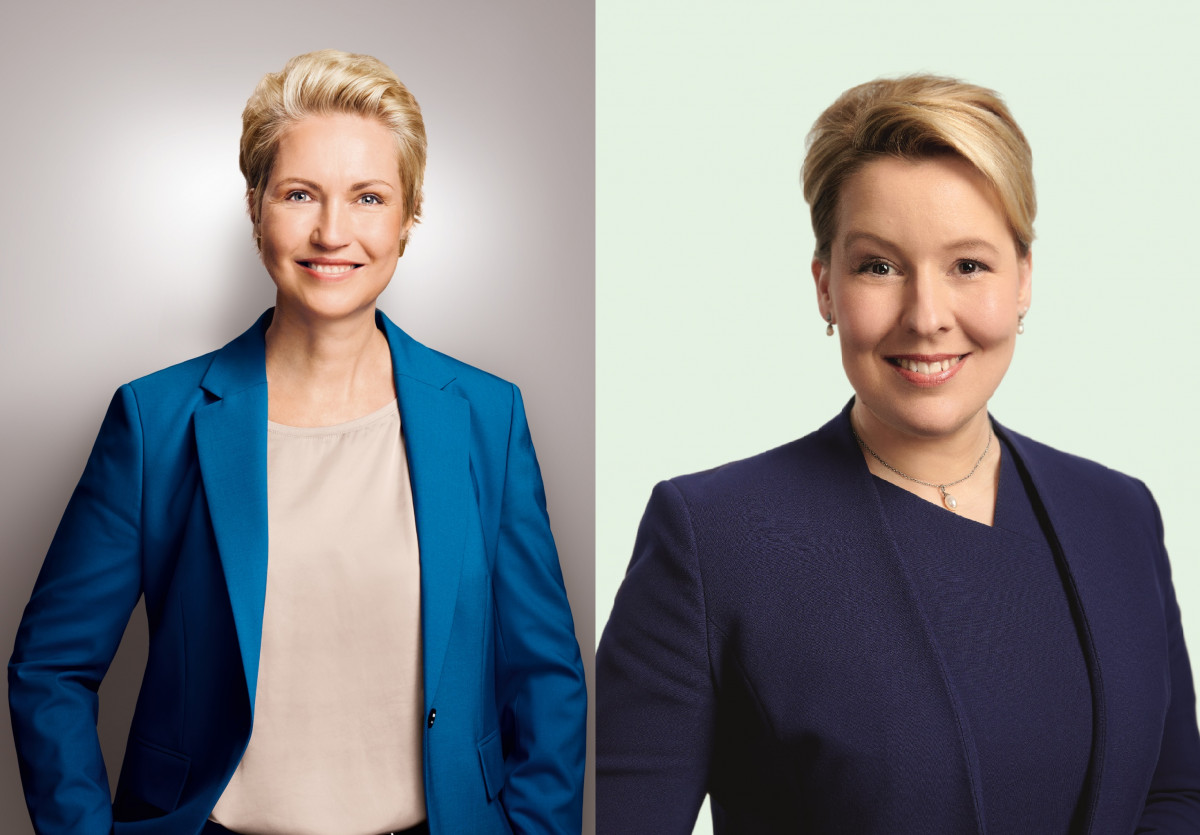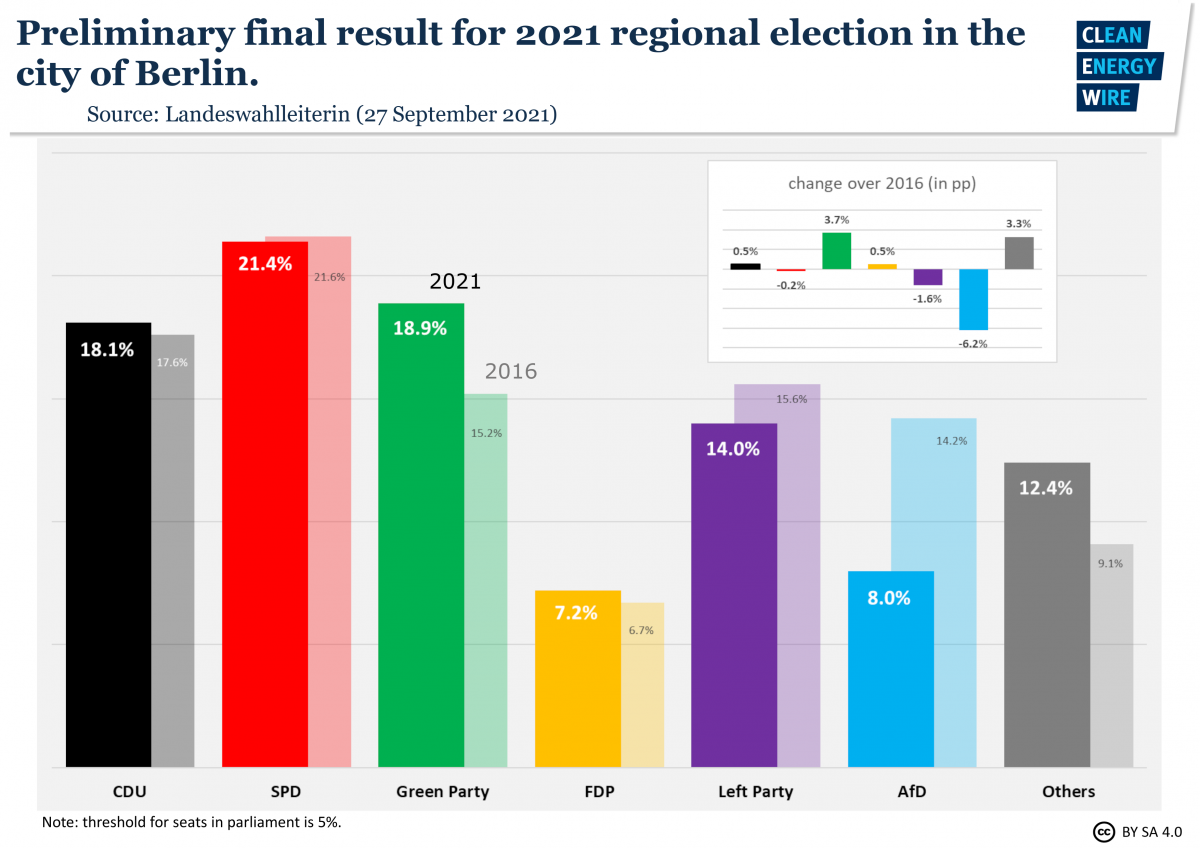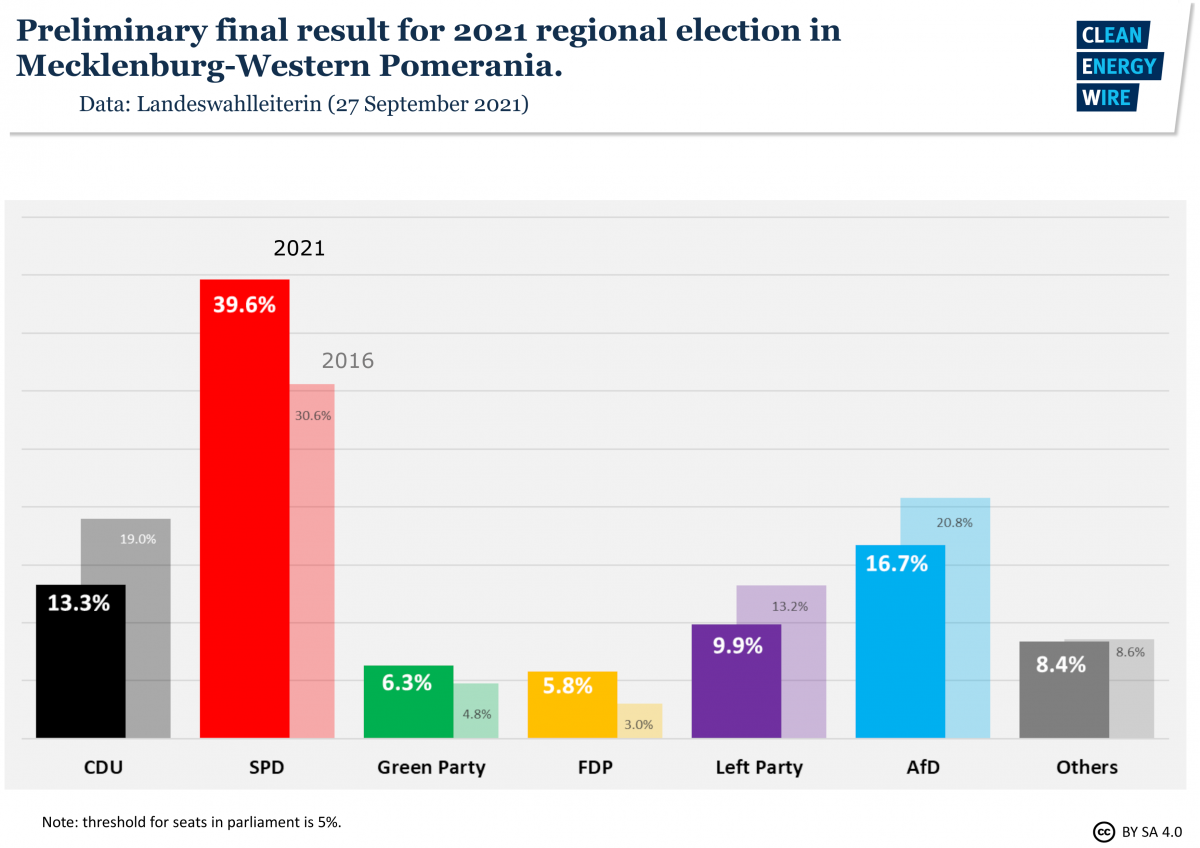Social Democrats top off national election win with victories in two German states
The SPD has topped off its win in the national election with two victories in regional votes in the German capital Berlin and the eastern renewable energy state Mecklenburg-Western Pomerania.
In a close race in which projections by pollster Infratest dimap even showed the Green Party leading earlier in the night, the SPD under mayoral candidate Franziska Giffey came out on top in Berlin – albeit with its worst result since 1946. The state is now headed for another three-party coalition, with many options on the table and difficult negotiations ahead. The SPD will almost certainly lead the next government and aims to start exploratory coalition talks with the Greens, the CDU, the Left Party and the FDP. The current coalition of SPD, Greens and Left Party could be continued, but other options are also possible, such as an alliance of SPD, conservative CDU and pro-business FDP.
Almost four percentage points in gains for the Greens and only marginal changes for most other parties showed that people in Berlin did not want a fundamental change but “more Green,” wrote Lorenz Maroldt in an opinion piece in Tagesspiegel.
There were numerous glitches on the election day in Berlin. In some polling stations, the ballot papers ran out, state election officer Petra Michaelis told rbb. In others, ballot papers were mixed up. This led to long delays in voting and sometimes to long queues in front of the polling stations.
Germany’s national climate policy is based on major federal legislation like the Climate Action Law or the Renewable Energy Act, but states play a strong role when it comes to implementing necessary instruments and measures. At the federal level, state governments also make up one of the two parliamentary chambers, the Bundesrat, where they wield considerable power. As the Green Party takes part in 10 out of the 16 state governments, for example, it was able to exert political pressure in 2019 that led to the increase in the starting price of Germany’s CO2 price on transport and heating fuels.
Climate action not decisive for voters in Mecklenburg-Western Pomerania
The SPD’s victory in the eastern renewable energy state Mecklenburg-Western Pomerania was much clearer, as the party gained almost 40 percent of the vote and can thus comfortably continue to govern. The Social Democrats can now decide who to approach for coalition talks.
The popularity of state premier and SPD lead candidate Manuela Schwesig was key for the outcome. Seventy-one percent of eligible voters in Mecklenburg-Western Pomerania are satisfied with Schwesig's work - a top rating not only in her own state but also in comparison with other federal states. She announced a triad of a strong economy, social cohesion and nature and environmental protection as the agenda for the next legislative period.
Climate action was not a key issue to determine voters’ choices in the state where the controversial Nord Stream 2 gas pipeline makes landfall, reports the public broadcaster based on a survey conducted by pollster Infratest dimap. Only 13 percent say this is the most important issue for them. “Social security” and “the economy and labour,” on the other hand, are both rated as the most important issue by 27 percent. “This also explains why the Greens fared comparatively poorly in the state elections in the north-east,” writes ARD. Still, the Greens managed to enter the state parliament for only the second time ever.




